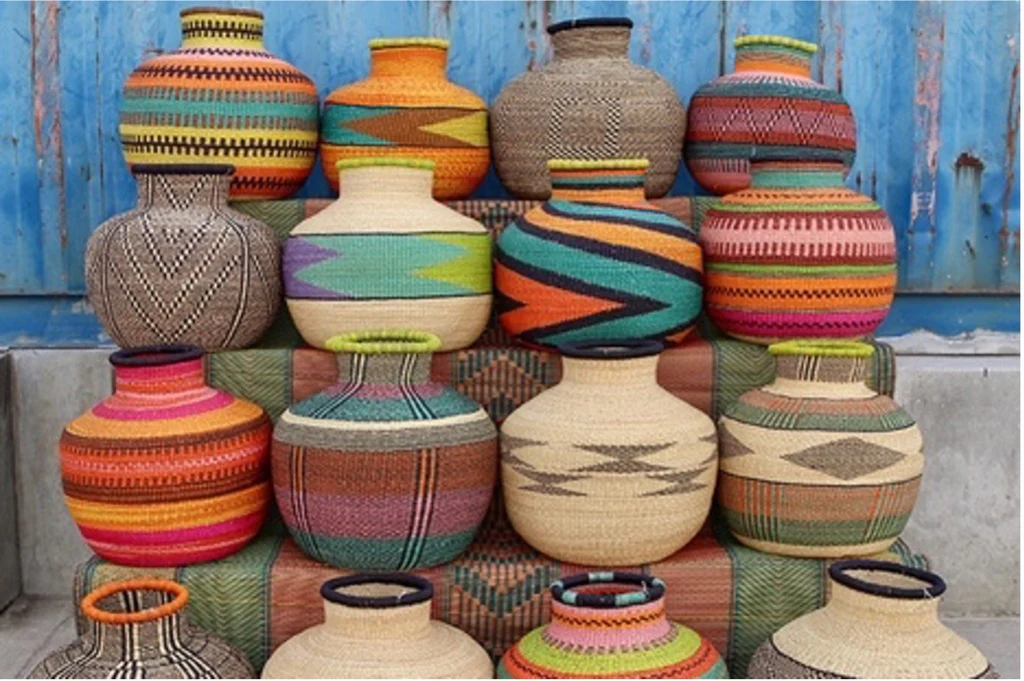Africa is home to a rich tradition of basket weaving, a craft that has been passed down through generations and remains an integral part of daily life. Woven baskets serve a variety of purposes, from food storage and carrying goods to home decor and ceremonial use. Each region has developed its own unique styles, materials, and techniques, making African baskets highly sought-after worldwide. Here, we explore seven of the most remarkable woven baskets from across the continent.
Bolga Baskets (Ghana)
Hailing from the Bolgatanga region of Ghana, Bolga baskets are among the most well-known African woven baskets. Crafted primarily from elephant grass, these baskets are tightly woven and dyed in vibrant colours. They are commonly used as shopping baskets, storage containers, and decorative pieces. The craftsmanship ensures durability, making them a favourite among eco-conscious shoppers worldwide.
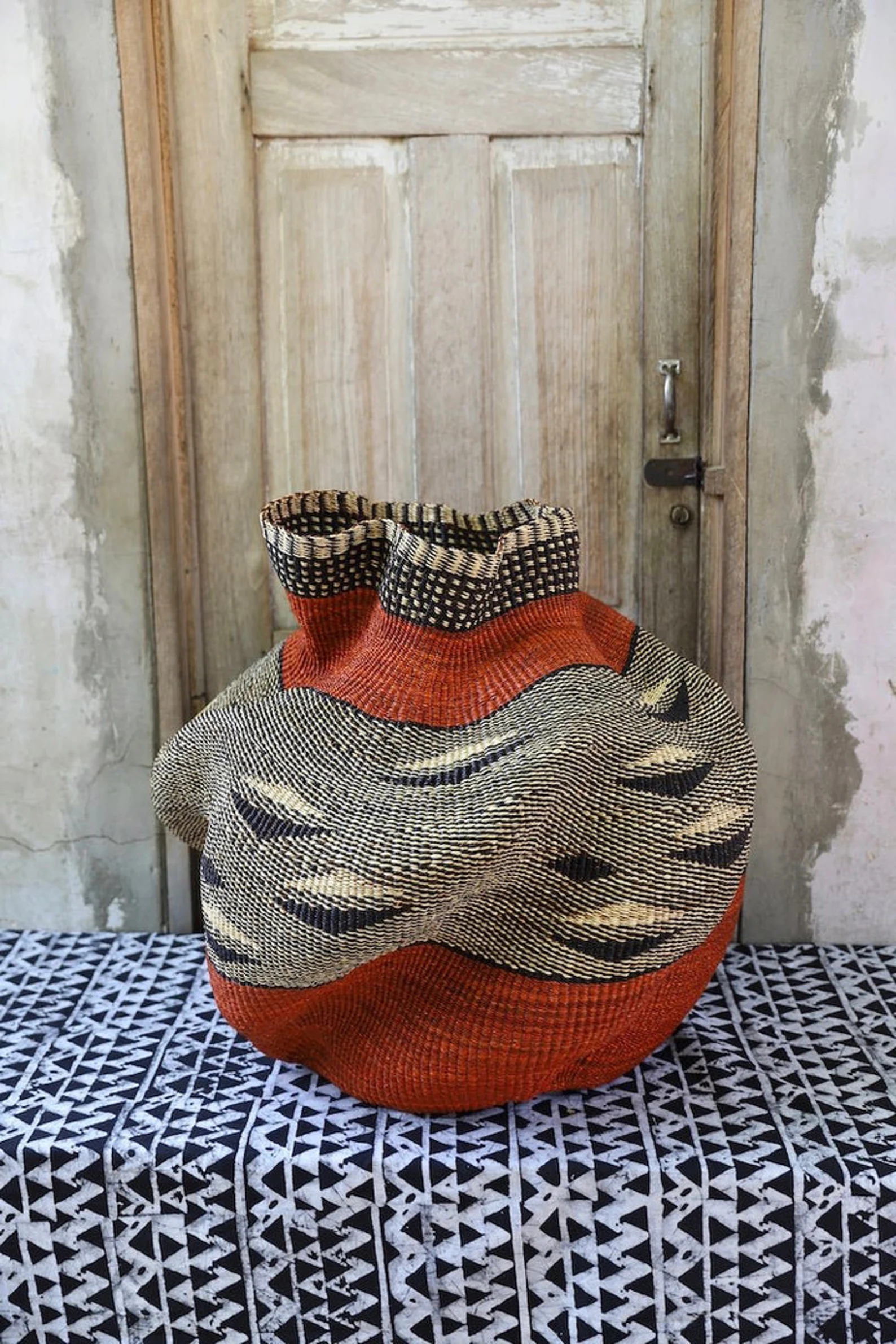
Zulu Ilala Palm Baskets (South Africa)
The Zulu people of South Africa have a long tradition of weaving exquisite baskets using ilala palm fronds. These baskets are often intricately designed with natural dyes made from roots, leaves, and bark. Traditionally, they were used to store food and liquids, including homemade beer. Today, they are prized for their intricate patterns and serve as stunning decor pieces in homes around the world.
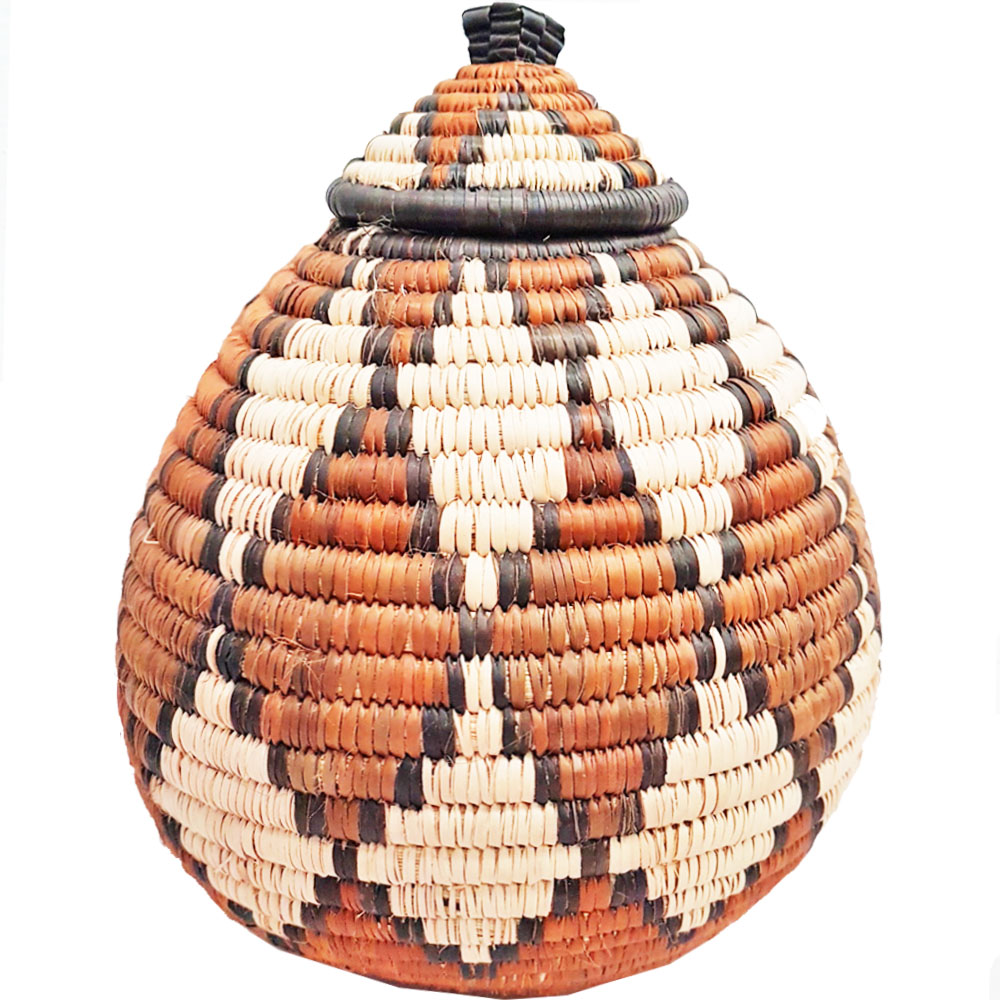
Rwandan Agaseke Baskets (Rwanda)
Agaseke baskets from Rwanda are symbols of peace and unity, historically exchanged as gifts to signify goodwill. They are meticulously handwoven using sisal and sweetgrass, often displaying intricate geometric patterns. Their conical lids make them ideal for storing jewellery, small household items, or as striking centrepieces. The popularity of Agaseke baskets has grown internationally due to their beauty and cultural significance.
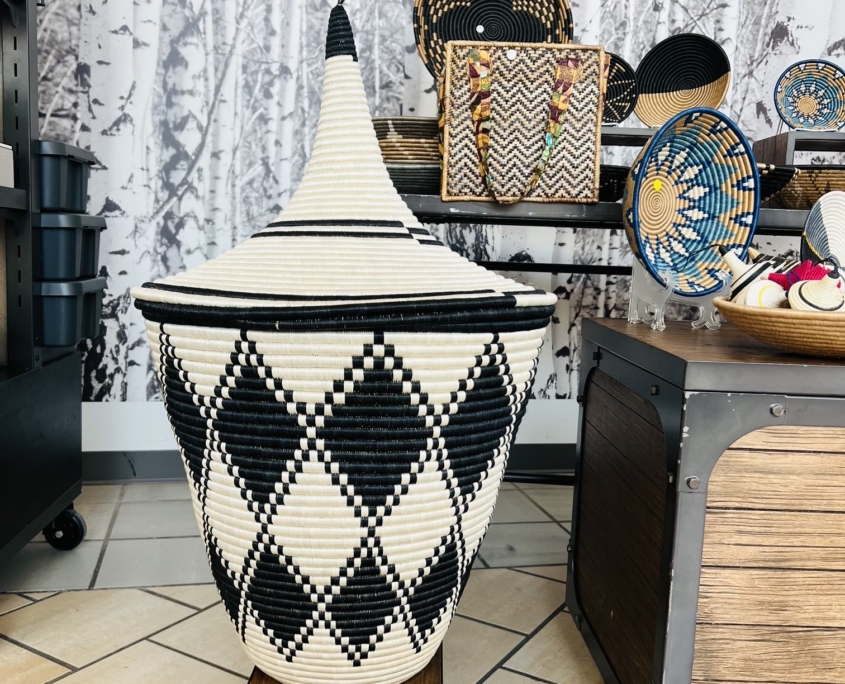
Tutsi Peace Baskets (Burundi and Rwanda)
Similar to the Agaseke, Tutsi peace baskets carry deep historical meaning. These slender, woven containers are often given as tokens of reconciliation and friendship. Their tight coil weaving technique ensures longevity, and they frequently feature striking black-and-white designs. They are commonly used for holding trinkets, as gift baskets, or as decorative pieces.
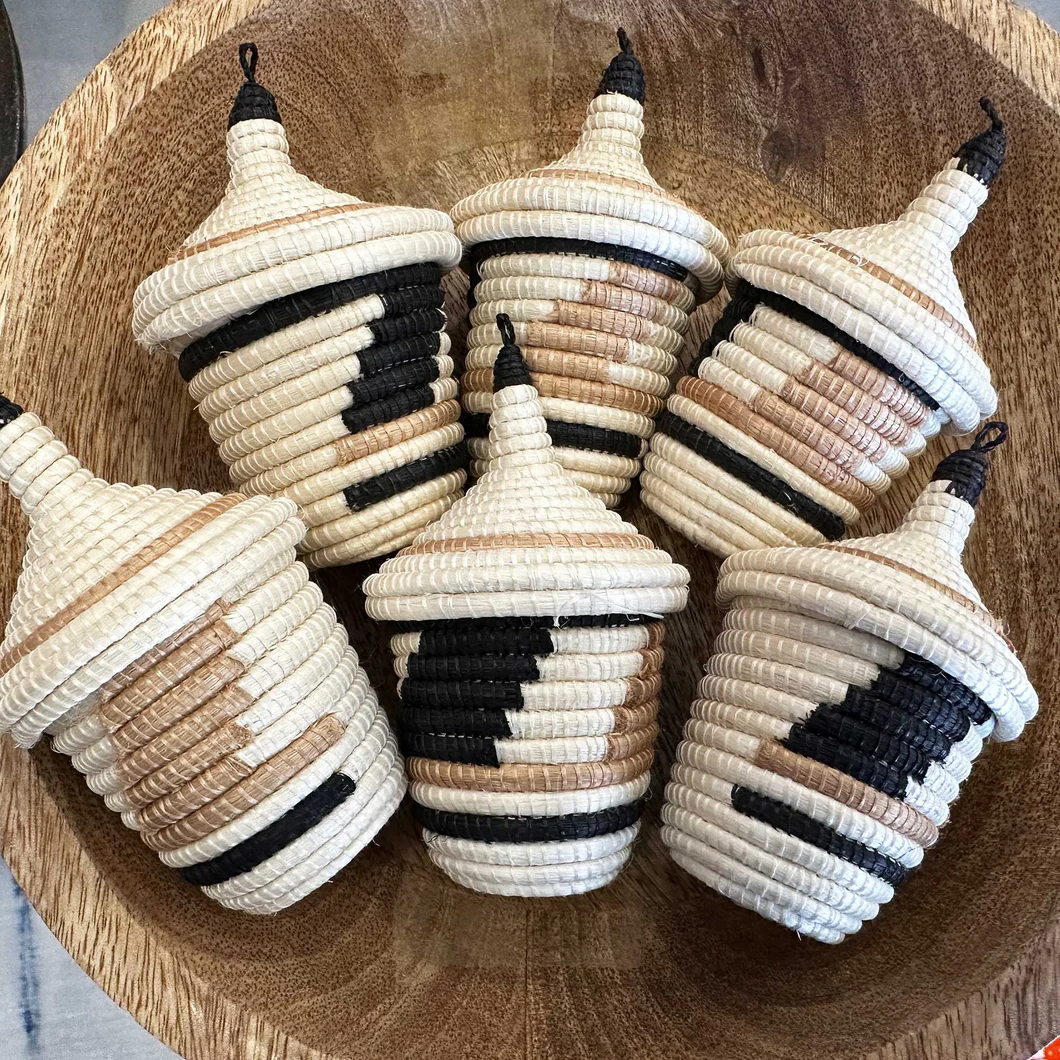
Tonga Baskets (Zimbabwe and Zambia)
Tonga baskets, woven by the Tonga people of Zimbabwe and Zambia, are recognised for their shallow, round shape and intricate patterns. Made primarily from locally sourced palm leaves and wild grasses, these baskets are traditionally used for winnowing grain. Today, they are popular as wall decor and centrepieces in contemporary interior design, adding a rustic and authentic African touch to any space.
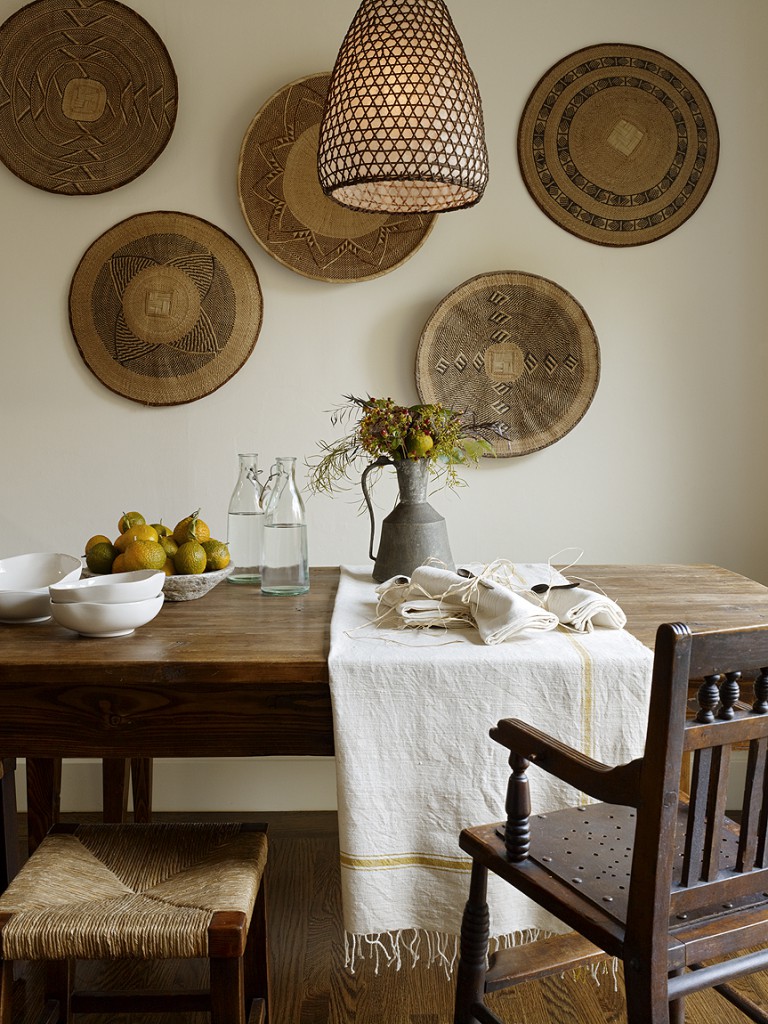
Wolof Storage Baskets (Senegal)
Senegalese Wolof baskets are woven from locally harvested cattail reeds and recycled plastic strips, making them a blend of tradition and sustainability. These baskets are available in a variety of sizes and often feature bright, bold patterns. They are widely used for laundry, toy storage, or as statement pieces in modern homes. Their durability and eco-friendly nature make them a popular choice for sustainable living.
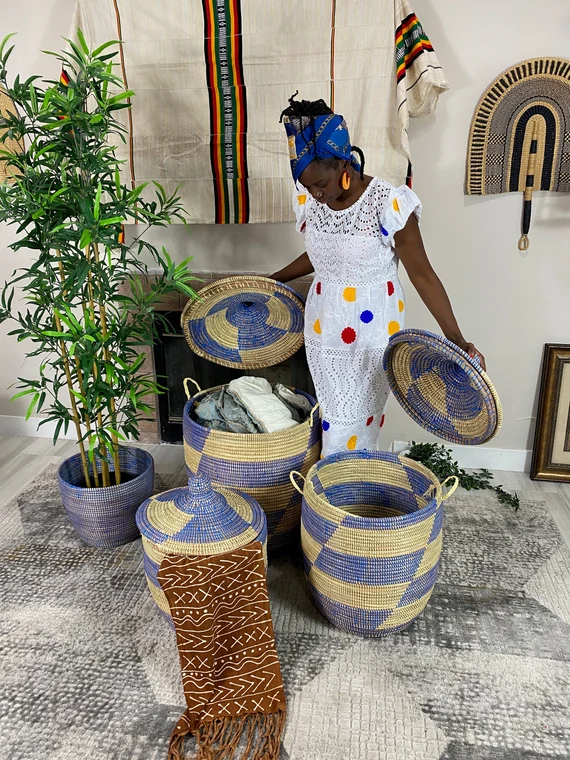
Makenge Baskets (Zambia)
Makenge baskets are among the most revered woven pieces in Africa. Crafted by the Lozi and Mbunda people of Zambia, these baskets are made from the roots of the Makenge bush. Their intricate weaving process can take weeks, and they are traditionally given as wedding gifts due to their strength and longevity. Over time, Makenge baskets develop a rich patina, making them even more valuable as heirloom pieces.
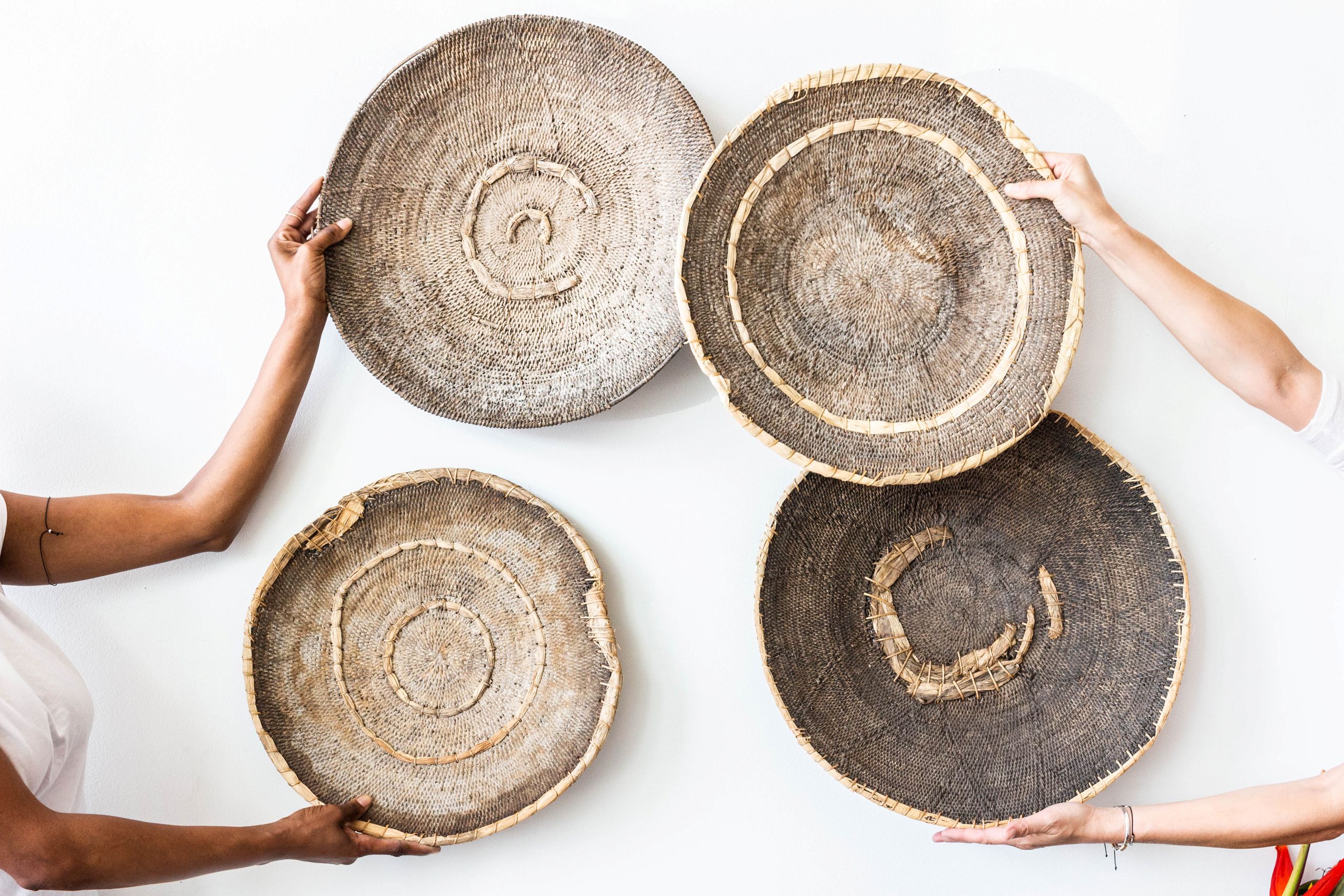
A Basket For Your Home
African woven baskets are more than just functional items; they represent centuries of craftsmanship, cultural heritage, and artistic expression. Whether used for storage, decoration, or ceremonial purposes, these baskets continue to captivate people around the world. Their sustainability and aesthetic appeal make them an excellent choice for those looking to add a touch of African artistry to their homes. As demand for handmade, ethical products grows, African baskets remain a timeless and meaningful investment.

